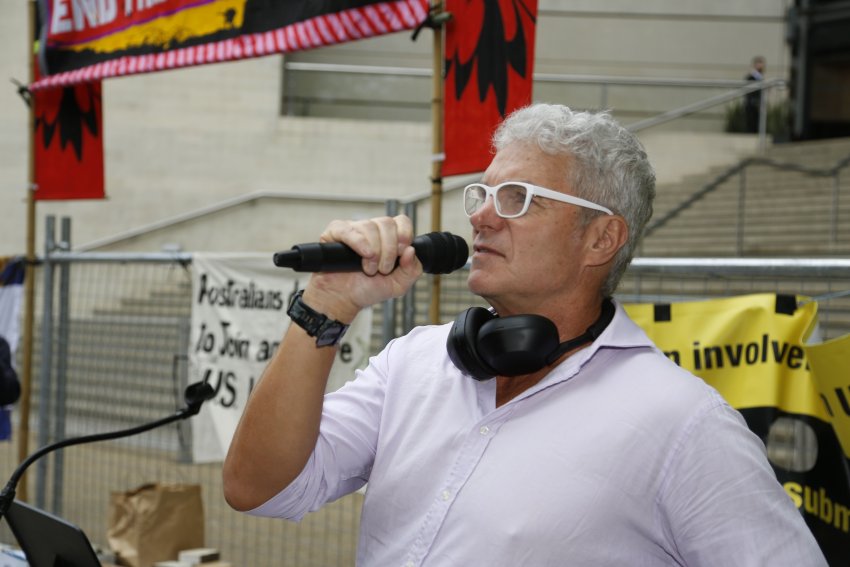
The clock is ticking for whistleblower David McBride who faces prosecution in November for revealing war crimes by Australian troops in Afghanistan.
Following the 2020 Brereton report, in which details of these crimes of are given, military chief Angus Campbell promised that those responsible would be “held to account”.
Three years later, not one of the perpetrators has been charged and McBride faces jail for revealing war crimes.
More than 70 organisations have joined the campaign to drop the prosecutions of McBride and tax office whistle blower Richard Boyle.
Attorney General Mark Dreyfus has the power to end the prosecution, as he did last year in the case of Bernard Collaery who helped expose Australian government spying on Timor-Leste.
McBride told a meeting on August 18 that he has no confidence Dreyfus will do that without a lot more public pressure.
“Dreyfus would like to drop my case,” McBride said “because he doesn’t benefit anything from it”.
“He can see if I get put in jail, it won’t be that good for him” as he would struggle to explain it. “He’s going to get flak and he’s not particularly brave.”
McBride believes Dreyfus had the same attitude towards the Collaery case. “But the spooks wouldn’t drop it” because they wanted to make an example of him.
In McBride’s view, Dreyfus buckled to pressure from the head of the Australian Secret Intelligence Service and was all set to push ahead with the prosecution of Collaery. This only changed after diplomatic pressure from Timor Leste.
McBride believes “the spooks” are equally determined to prosecute him: he is expecting to go to prison.
National security laws limit the evidence McBride is able to bring and mean the court case could be closed — at least in part — to the public and media.
He said national security laws may have been “made with good intentions” but they’re “misused” to “put people like me in jail without a fair trial”.
“That’s why I don’t think I’ll win my case.”
However, he believes he will “eventually win” because people can see that that’s “bullshit”.
He doesn’t think prison is going to be easy and is especially worried about the impact on his children.
“If your father goes to prison, subconsciously or consciously, they can’t help but think you must be a bad person,” he said.
McBride thanked his supporters, who have helped raise awareness about the justice of his cause. “Due to the support of people like you,” his children now see he is in the right. “They’ll be able to hold their heads up quite high if I go to jail.”
McBride is unrepentant about his role in exposing Australia’s war crimes in Afghanistan.
People don’t jump to blow the whistle the first time they see some questionable conduct, he said. But when misdeeds accumulate and are covered up, you have no choice. “The right thing to do is to do your job. It’s not heroic; it’s just your job.”
He said that those at the top need to take responsibility. “I reckon they knew and, even if they didn’t know, how could that not be incompetence?”
“They were all very [good at] pinning medals on people and taking reflected glory when the war was going well, and then when [truths about war crimes] start coming out they all run for cover.
“I’m hunting generals not corporals. I respect a lot of the soldiers. It’s my own conscience I have to answer to.”